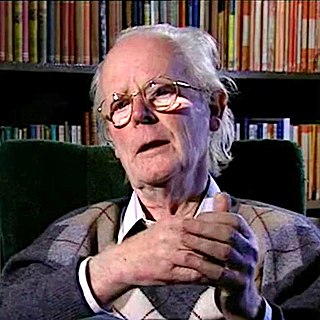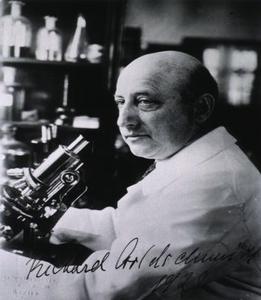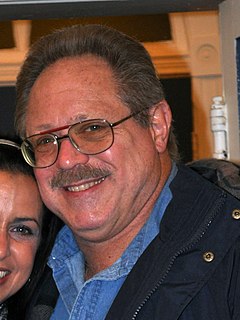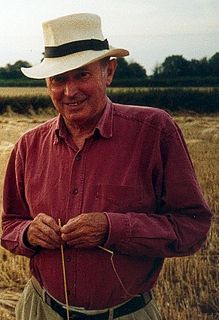A Quote by Ronald Fisher
Natural Selection is not Evolution. Yet, ever since the two words have been in common use, the theory of Natural Selection has been employed as a convenient abbreviation for the theory of Evolution by means of Natural Selection, put forward by Darwin and Wallace. This has had the unfortunate consequence that the theory of Natural Selection itself has scarcely ever, if ever, received separate consideration.
Related Quotes
Alfred Russel Wallace, the codiscoverer of the theory of natural selection. Following their twin announcements of the theory in 1858, both Darwin and Wallace struggled like Laocoöns with the serpentine problem of human evolution and its encoiling difficulty of consciousness. But where Darwin clouded the problem with his own naivete, seeing only continuity in evolution, Wallace could not do so.
The theory of natural selection is the centerpiece of The Origin of Species and of evolutionary theory. It is this theory that accounts for the adaptations of organisms, those innumerable features that so wonderfully equip them for survival and reproduction; it is this theory that accounts for the divergence of species from common ancestors and thus for the endless diversity of life. Natural selection is a simple concept, but it is perhaps the most important idea in biology.
Group selection and individual selection are just two of the selection processes that have played important roles in evolution. There also is selection within individual organisms (intragenomic conflict), and selection among multi-species communities (an idea that now is getting attention in work on the human microbiome). All four of these levels of selection find a place in multi-level selection theory.
In fact, nothing in science as a whole has been more firmly established by interwoven factual information, or more illuminating than the universal occurrence of biological evolution. Further, few natural processes have been more convincingly explained than evolution by the theory of natural selection, or as it has been popularly called, Darwinism.
You can be a thorough-going Neo-Darwinian without imagination, metaphysics, poetry, conscience, or decency. For 'Natural Selection' has no moral significance: it deals with that part of evolution which has no purpose, no intelligence, and might more appropriately be called accidental selection, or better still, Unnatural Selection, since nothing is more unnatural than an accident. If it could be proved that the whole universe had been produced by such Selection, only fools and rascals could bear to live.
I believe in the theory of evolution, but I believe as well in the allegorical truth of creation theory. In other words, I believe that evolution, including the principle of natural selection, is one of the tools used by God to create mankind. Mankind is then a participant in the creation of the universe itself, so that we have a closed loop. I believe that there is a level on which science and religious metaphor are mutually compatible.
Human rights are an aspect of natural law, a consequence of the way the universe works, as solid and as real as photons or the concept of pi. The idea of self- ownership is the equivalent of Pythagoras' theorem, of evolution by natural selection, of general relativity, and of quantum theory. Before humankind discovered any of these, it suffered, to varying degrees, in misery and ignorance.
Creationists argue that natural selection is only a negative process, and therefore cannot create anything. Chopra argues that skepticism is only a negative process, and therefore does not lead to knowledge. Both are wrong for the same reasons. They ignore the generation of diversity and new ideas upon which natural selection and skepticism acts. Weeding out the unfit is critical to both - natural selection allows evolution to proceed, and skepticism allows science to advance.







































